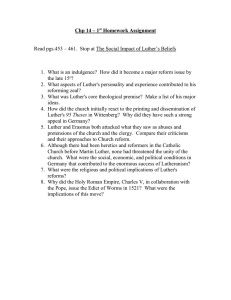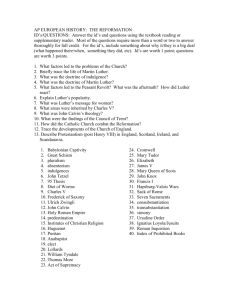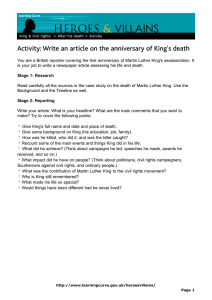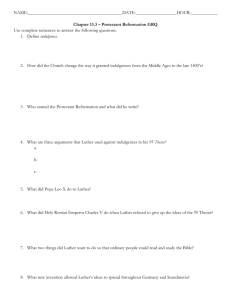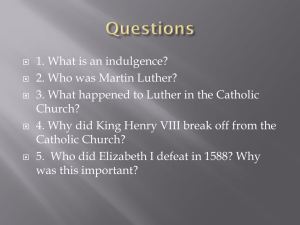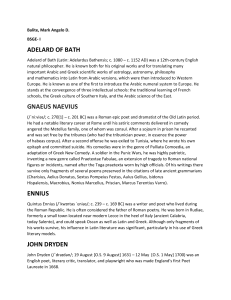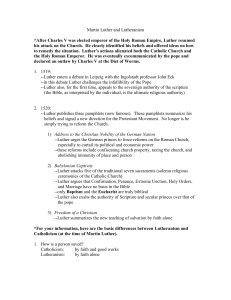Chapter 11 Reading Questi.doc
advertisement
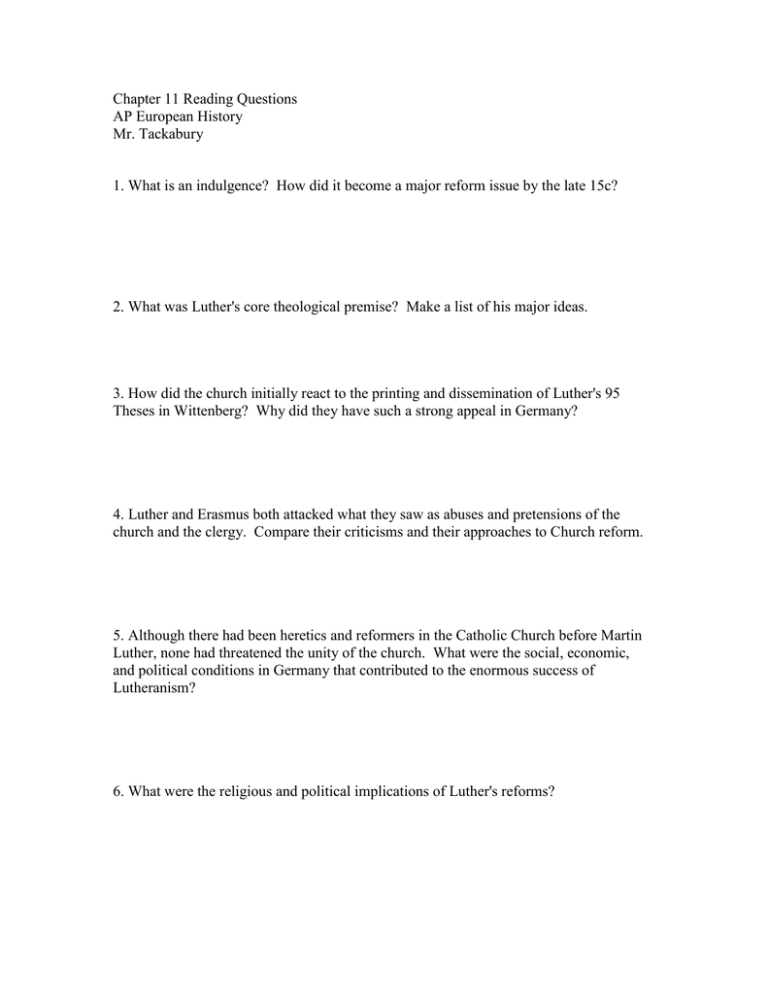
Chapter 11 Reading Questions AP European History Mr. Tackabury 1. What is an indulgence? How did it become a major reform issue by the late 15c? 2. What was Luther's core theological premise? Make a list of his major ideas. 3. How did the church initially react to the printing and dissemination of Luther's 95 Theses in Wittenberg? Why did they have such a strong appeal in Germany? 4. Luther and Erasmus both attacked what they saw as abuses and pretensions of the church and the clergy. Compare their criticisms and their approaches to Church reform. 5. Although there had been heretics and reformers in the Catholic Church before Martin Luther, none had threatened the unity of the church. What were the social, economic, and political conditions in Germany that contributed to the enormous success of Lutheranism? 6. What were the religious and political implications of Luther's reforms? 7. Why did the Holy Roman Empire, Charles V, in collaboration with the Pope, issue the Edict of Worms in 1521? What were the implications of this move? 8. Why did many German political authorities [especially the nobility] support Luther's cause? Why was their support so essential to his success? 9. What were the causes of the Peasants' Revolt of 1525-1526? What was Luther's position in this upheaval? Why did he take that position? 10. What role did the Holy Roman Emperor, Charles V, play in the Protestant Reformation? 11. What were the provisions of the Peace of Augsburg of 1555? How was it a religious compromise? What issues were left unresolved?

